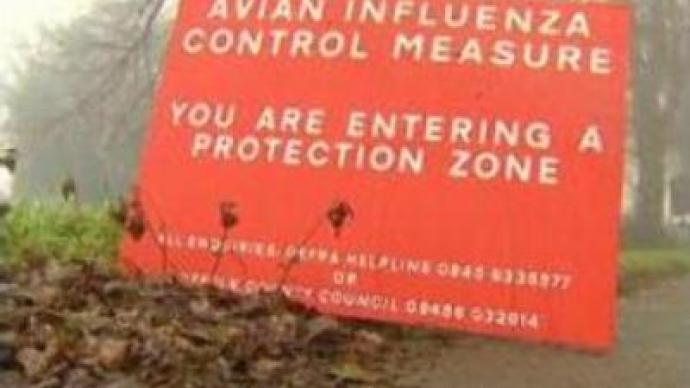Mass turkey cull to halt bird flu in England

A mass culling of turkeys has begun in southern England after an outbreak of the H5N1 strain of bird flu. This was the first time the deadly disease had affected a commercial farm in the country.
A 3 km protection zone was set up around the Matthews' farm in southern England. All vehicles at the site were disinfected. The farm has about 22 turkey sheds, and all the birds will be culled. The bird flu that killed hundreds of turkeys in southern England, has been confirmed as the deadly H5N1 strain of the virus. The main mystery now is how the virus reached the turkeys. And for British poultry farmers the biggest worry is that a large number of wild birds might already be carrying the disease around. In recent weeks, H5N1 has killed 6 people in Indonesia and has spread through birds in Vietnam and Thailand. The virus has also claimed its first human life in Nigeria. Last week, an outbreak of Bird Flu was reported in Russia's southern region of Krasnodar. But it's still unclear which strain of the virus was to blame. H5N1 has killed at least 164 people worldwide since 2003, most of them in Asia. And more than 200 million birds have died or been culled. The World Health Organisation has warned that a repeat is possible this year and has encouraged countries to remain on high alert.
You can share this story on social media:












